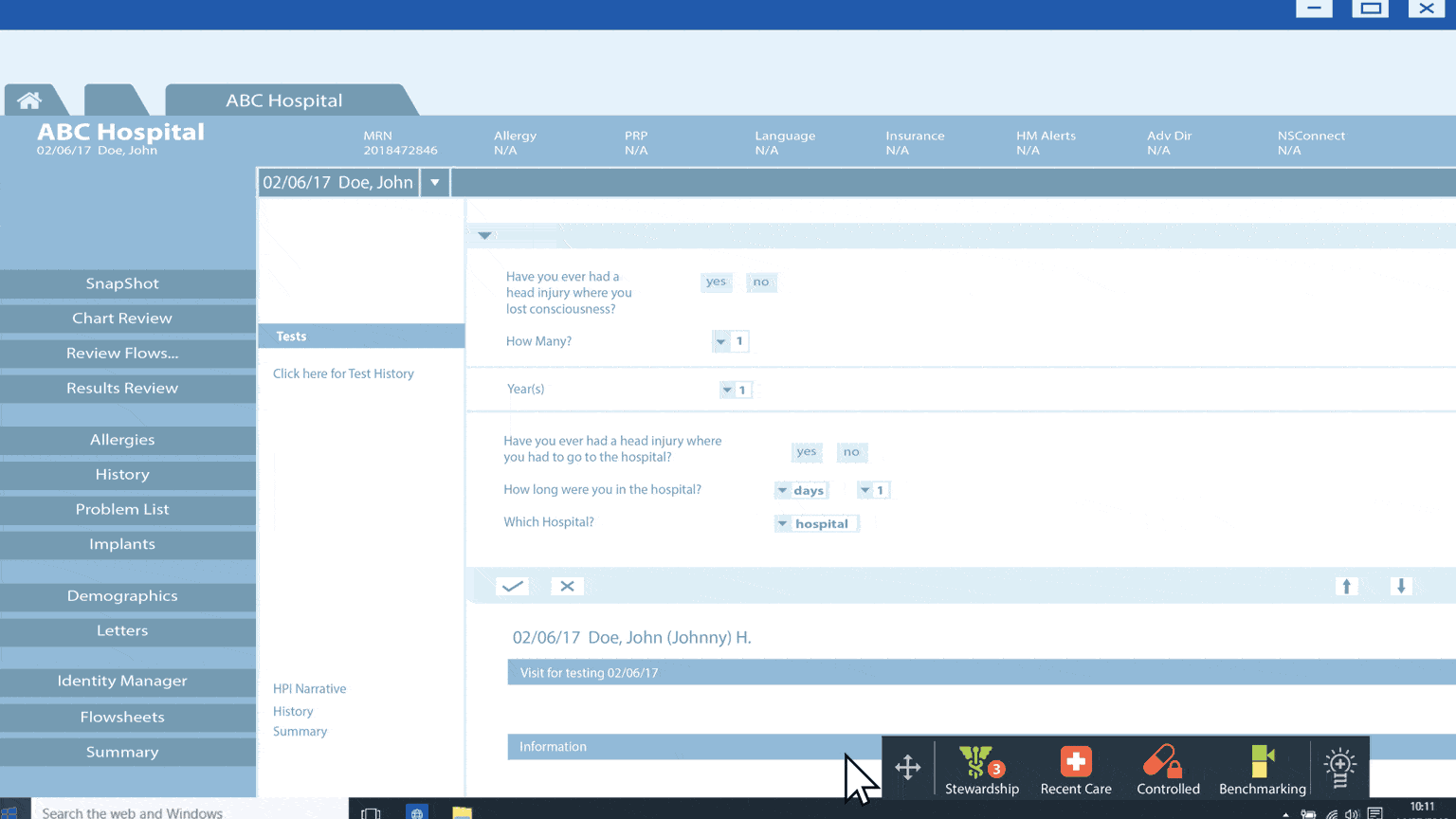
IllumiCare launches the first controlled substance tracking solution within the EMR to combine inpatient and outpatient data on opioid exposure.
A new app for the EHR is alleviating a blindspot in opioid prescribing, giving clinicians the first full picture of opioid exposure on a patient. Currently, treating clinicians look John Doe up in the state’s PDMP to see his opioid history when he comes to the ER in pain. He doesn’t have one, so they prescribe it during his stay then he’s sent home. He’s back shortly after, a new doctor looks up the same state database, prescribes opioids; this time he gets a 10-day prescription. It is clear here that doctor’s aren’t getting the full picture of exposure and John’s chance for chronic use has heightened.
Studies show opioid introduction happens largely in the hospital, like it did for John Doe. But no system is giving docs easy visibility into what and how much is prescribed across each hospital stay. While checking the PDMP is important, it is only the outpatient exposure.
To combine all the controlled substance tracking data into one place for quick reference, Birmingham, AL-based IllumiCare today announces its Controlled Substance App for the Smart Ribbon. IllumiCare’s Smart Ribbon technology has saved hospitals millions on inpatient admissions as it displays patient-specific risk and cost data unobtrusively within the EHR so clinicians can consider it when making care decisions. Now, the Smart Ribbon can display opioid and other controlled substance data, packaging inpatient and outpatient opioid prescription data into the Ribbon’s easy-to-navigate format. Using the Ribbon, clinicians can make more informed decisions on dosage, alternatives and other important considerations.
The app provides comprehensive information on a patient’s opioid history based on the PDMP, tracks use in the hospital, and shows alerts at peak thresholds of administration. This allows providers to be more judicious in prescribing opioids based on a patient’s history and make better decisions about appropriate dosage.
A recent study made a surprising discovery when looking at the impact of an incomplete view of opioid exposure. After checking the PDMP data, more ER physicians changed their mind and decided to prescribe an opioid versus changing their mind to not prescribe one. The study authors cautioned that the PDMP data is incomplete. But, in this study a “clean” PDMP report overrode the clinicians’ baseline concern about opioids and made them more likely to prescribe opioids.
The Texas Hospital Association’s Center for Technology Innovation is one of the first to offer the new app to member hospitals, with its first deployment in the works.
“Texas hospitals are at the forefront of using technology in ways that allow providers to make faster decisions at the point of care with better information,” said Ted Shaw, THA president/ CEO. “Our work with Illumicare is influenced by our perspective on the entire hospital landscape to affect how information can be used to help improve outcomes. This work aligns with our priorities in public policy and education on opioid risk management as a service for our member hospitals and the state of Texas.”
